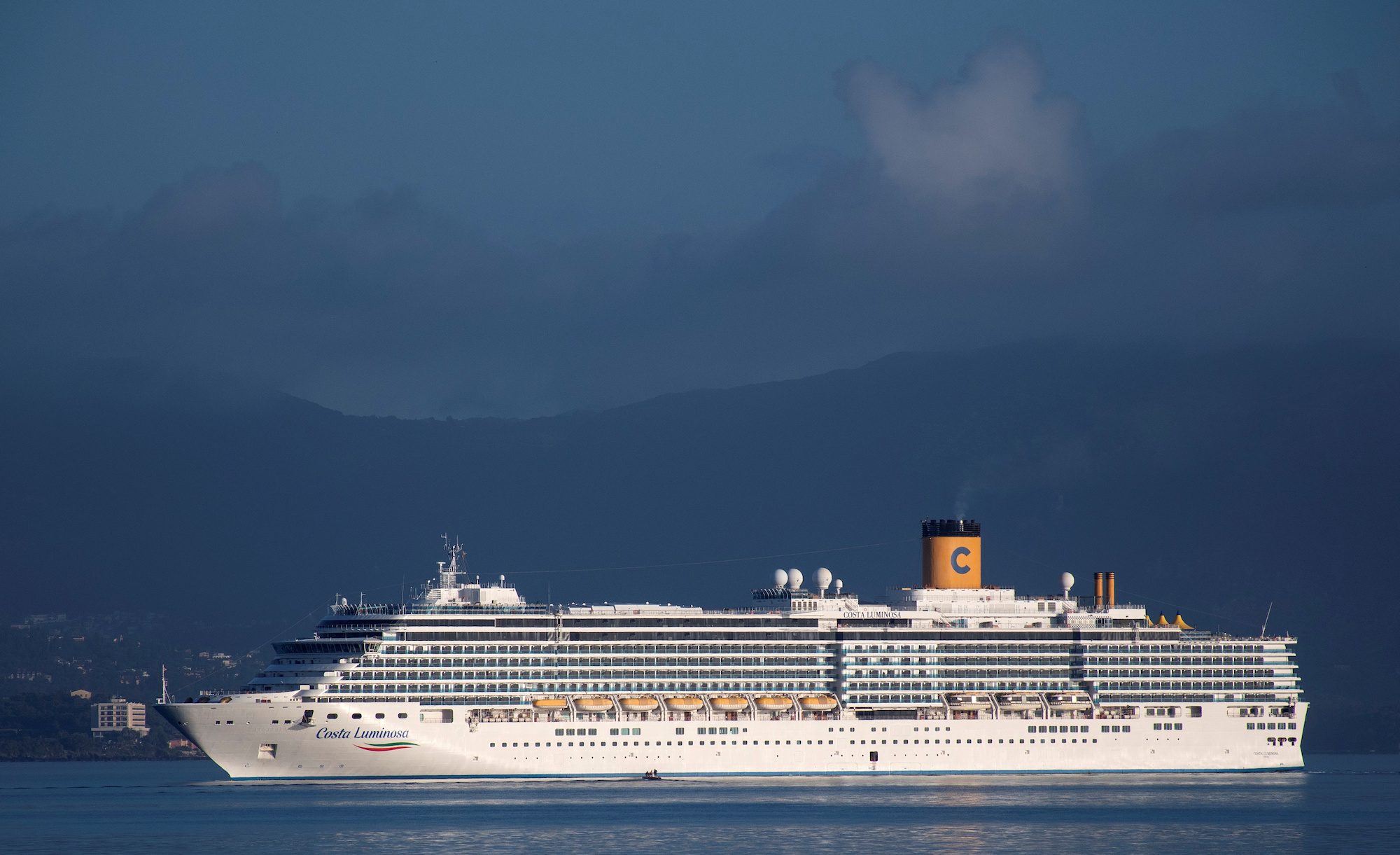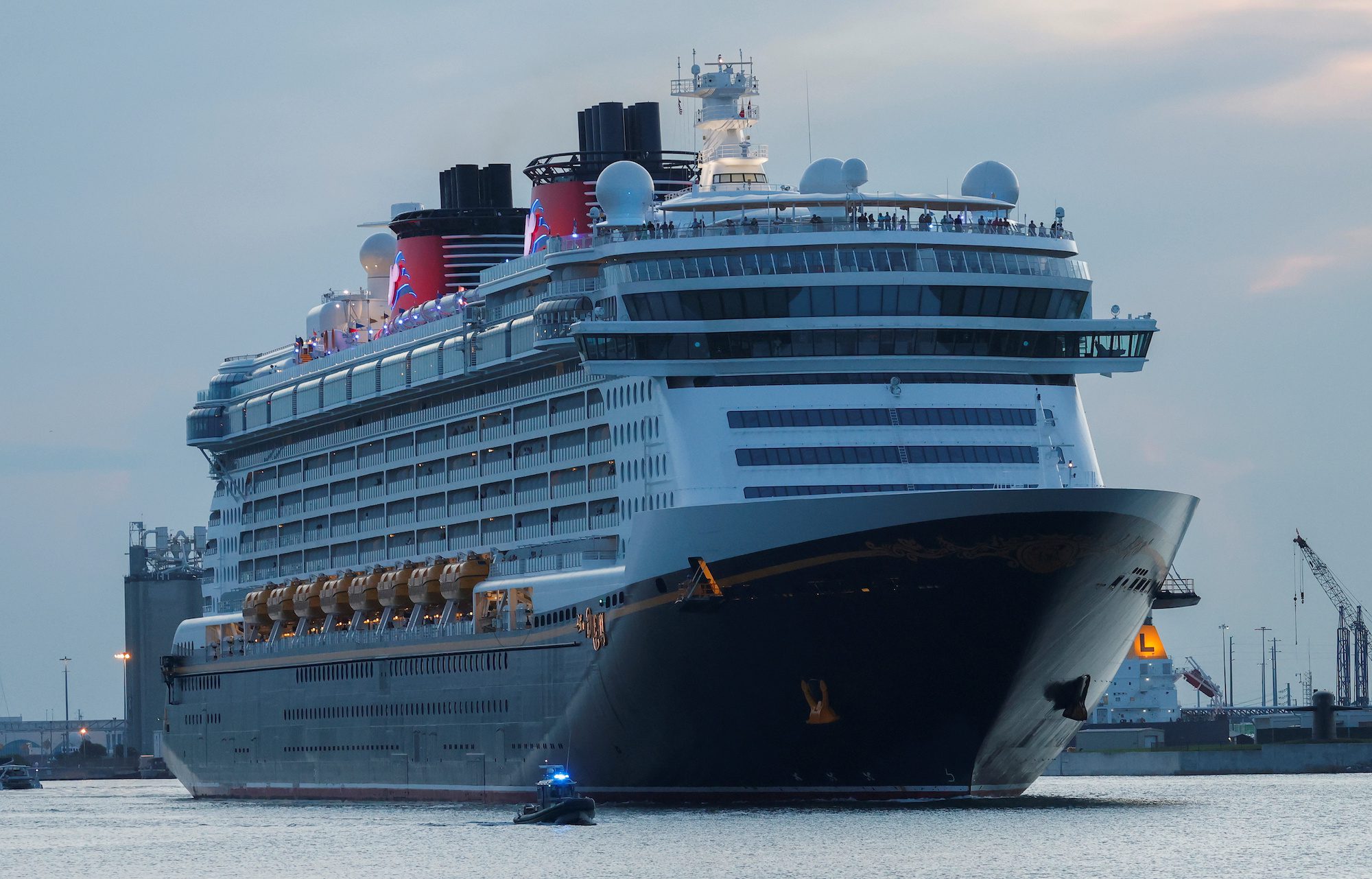By Valentini Anagnostopoulou
SANTORINI, Greece, July 27 (Reuters) – Armed with selfie sticks and phones, the tourists flood into Santorini from everywhere – on dinghies from giant ocean liners, on coaches that zigzag up the steep hillsides, atop donkeys that clip-clop along the narrow cobbled streets.
Some brave the afternoon heat to find a good spot among the white-washed houses and blue-domed churches where they then wait hours to watch the Greek island’s famed sunset. As the sun dips, many more join them, squeezing along the cliffside or onto balconies, cameras at the ready.
“This has been my dream since high school,” said American tourist Maria Tavarez, 40.
But for many of Santorini’s 20,000 permanent residents, the once idyllic island of quaint villages and pristine beaches has been ruined by mass tourism.
As protests against excessive tourism erupt in other popular holiday destinations, including Venice and Barcelona, Santorini represents one of the starkest examples of how hoards of visitors can impact a place.
Authorities on the island have joined other tourism hotspots in calling for a cap on visitors.
The growing number of foreign tourists – some 3.4 million visited the island last year, according to mayor Nikos Zorzos – are putting pressure on its outdated infrastructure and are pricing islanders out of the housing market.
Zorzos says he has been pushing authorities for years not to allow a single extra bed on the island and has proposed a cap on the number of cruise ship visitors to 8,000 a day, down from around 17,000.
“It is in the best interest of our land for there to be a limit,” he said.
‘A MONSTER’
Even business owners who benefit from tourism are worried.
“Our standards of living have gone down. It’s as simple as that,” said Georgios Damigos, who runs a 14-room hotel his parents opened in the 1980s.
“Santorini is a wonder of nature” that risks turning into “a monster,” he said.
Santorini’s tourism boom is echoed across Greece. National tourism revenues rose 16% in the first five months of this year, data shows, and 2024 is forecast to outstrip last year’s record 33 million arrivals.
For some on Santorini, more visitors is good news.
“Everything is possible when there is planning and infrastructure,” said Alexandros Pelekanos, vice president of the island’s umbrella trade association.
“Do we want money or not? Do we want to have work and revenues or not?” he said. “You cannot have your peace and quiet and make money.”
The tourists don’t seem to mind as they cheerfully trundle past a sign that reads “RESPECT. It’s your holiday… but it’s our home.”
“It’s hard to walk around the narrow streets but it’s quite beautiful,” said Portuguese tourist Rita Critovao. “I would advise everyone to come.”
(Additional reporting and writing by Karolina Tagaris in Athens; Editing by Edward McAllister)
(c) Copyright Thomson Reuters 2024.

 Join The Club
Join The Club












